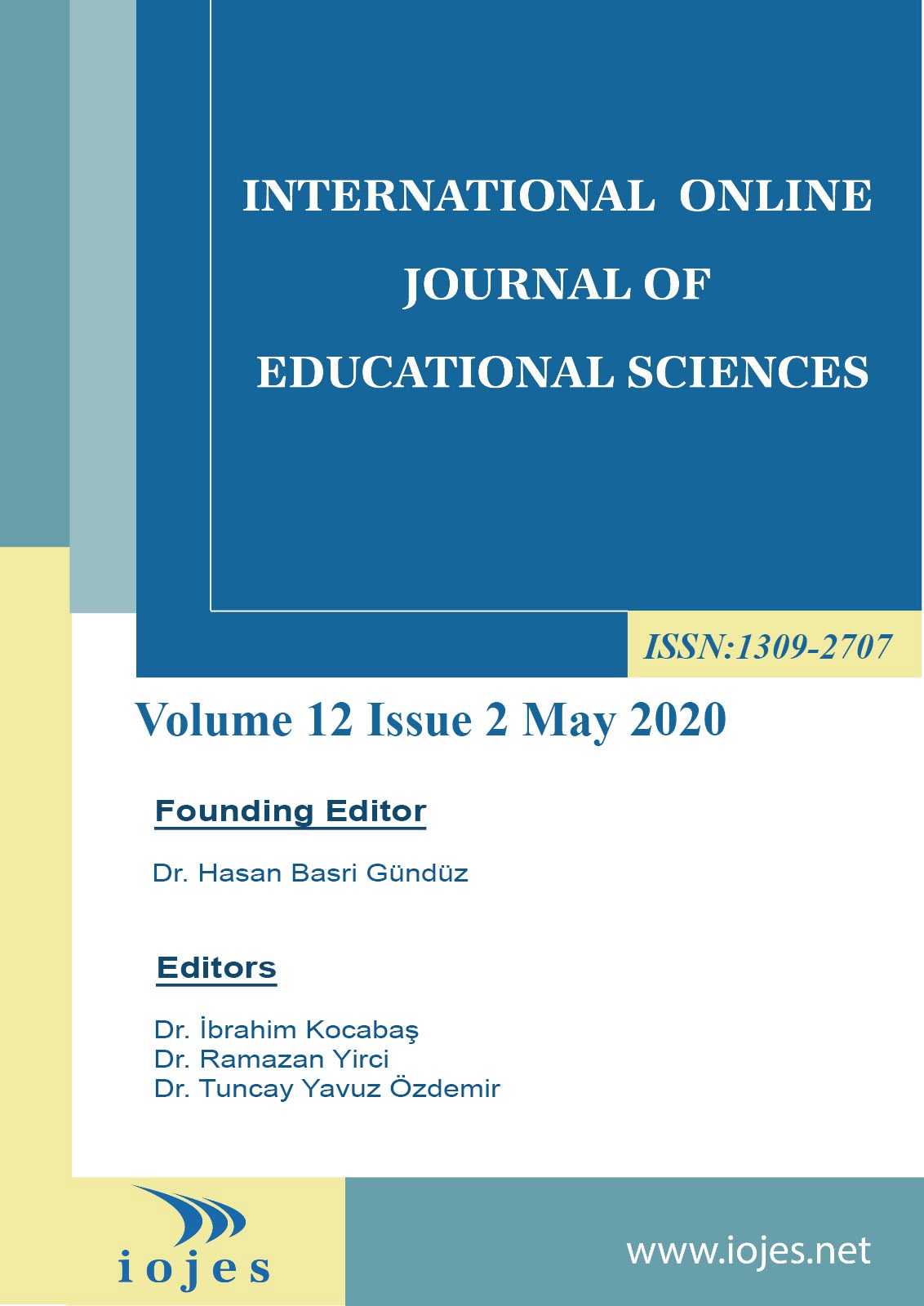Agile or fragile: Are you ready to teach English? EFL Pre-service Teachers’ Preparedness for Teaching
Author :
Abstract
Keywords
Abstract
The purpose of the study was to investigate the nature of Turkish pre-service EFL teachers’ sense of preparedness for teaching. Their understanding of effective language teacher characteristics, their perceptions of their weaknesses and strengths, their insight into the factors that contributed to or inhibited their development as teachers, and their beliefs about the potential areas for development in the teacher education programs were scrutinized in the scope of the current research. The study was basically an exploratory case study that employed individual interviews with 10 pre-service EFL teachers being trained at a public university in Turkey. The content analysis of the interviews revealed seven themes: perceptions of a good language teacher, foreseen challenges, perceived strengths, empowering factors, perceived weaknesses, inhibiting factors, and suggestions. The participants of the research mainly believe that an effective language teacher should possess pedagogical skills, pedagogical knowledge, technological pedagogical skills, classroom management skills, and interpersonal skills. However, they cite their personality traits as their strong side for teaching and pedagogical skills as their main source of weakness. They also believe that what inhibited their development as effective language teachers were some aspects of the education they received in the teacher-training program. Finally, they made significant suggestions for the improvement of the teacher-training program such as more courses that integrate theory with practice, more opportunities for actual teaching practice, and a better student teaching system. Based on these findings, some implications for Turkish EFL teacher-training programs are presented.
Keywords
- Allinder, R. M. (1994). The relationship between efficacy and the instructional practices of special education teachers and consultants. Teacher Education and Special Education, 17(2), 86-95. https://doi.org/10.1177/088840649401700203
- Anderson, L. M., & Stillman, J. A. (2013). Student teaching’s contribution to preservice teacher development: A review of research focused on the preparation of teachers for urban and high-needs contexts. Review of Educational Research, 83(1), 3-69. https://doi.org/10.3102/0034654312468619
- Atay, D. (2007). Beginning teacher efficacy and the practicum in an EFL context. Teacher Development, 11(2), 203-219. https://doi.org/10.1080/13664530701414720
- Bandura, A. (1977). Self-efficacy: toward a unifying theory of behavioral change. Psychological Review, 84(2), 191-215. https://doi.org/10.1037/0033-295X.84.2.191
- Bandura, A. (1997). Self-Efficacy: The Exercise of Control. New York: W. H. Freeman/Times Books/ Henry Holt & Co.
- Best, J.W. & Kahn, J.V. (2016). Research in Education. India: Pearson Education India.
- Brouwers, A., & Tomic, W. (2000). A longitudinal study of teacher burnout and perceived self-efficacy in classroom management. Teaching and Teacher Education, 16(2), 239-253. https://doi.org/10.1016/S0742051X(99)00057-8
- Brown, A. L., Lee, J., & Collins, D. (2015). Does student teaching matter? Investigating pre-service teachers’ sense of efficacy and preparedness. Teaching Education, 26(1), 1-30. https://doi.org/10.1080/10476210.2014.957666
- Caprara, G. V., Barbaranelli, C., Steca, P., & Malone, P. S. (2006). Teachers' self-efficacy beliefs as determinants of job satisfaction and students' academic achievement: A study at the school level. Journal of School Psychology, 44(6), 473-490. https://doi.org/10.1016/j.jsp.2006.09.001
- Cumming, A. (1989). Student teachers' conceptions of curriculum: Toward an understanding of language- teacher development. TESL Canada Journal, 7(1), 33-51. https://doi.org/10.18806/tesl.v7i1.558
- Darling-Hammond, L., Chung, R., & Frelow, F. (2002). Variation in teacher preparation: How well do different pathways prepare teachers to teach?. Journal of Teacher Education, 53(4), 286-302. https://doi.org/10.1177/0022487102053004002
- Davies, H. (2017). Competence-based curricula in the context of Bologna and EU higher education policy. Pharmacy, 5(2), 17. https://doi.org/10.3390/pharmacy5020017
- Elo, S., & Kyngäs, H. (2008). The qualitative content analysis process. Journal of Advanced Nursing, 62(1), 107- 115. https://doi.org/10.1111/j.1365-2648.2007.04569.x
- Faez, F., & Valeo, A. (2012). TESOL teacher education: Novice teachers' perceptions of their preparedness and efficacy in the classroom. TESOL Quarterly, 46(3), 450-471. https://doi.org/10.1002/tesq.37
- Gibson, S., & Dembo, M. H. (1984). Teacher efficacy: A construct validation. Journal of Educational Psychology, 76(4), 569-582. https://doi.org/10.1037/0022-0663.76.4.569
- Guskey, T. R. (1988). Teacher efficacy, self-concept, and attitudes toward the implementation of instructional innovation. Teaching and Teacher Education, 4(1), 63-69. https://doi.org/10.1016/0742-051X(88)90025-X
- Gürsoy, E., Kesner, J. E., & Salihoğlu, U. M. (2016). Clinical Supervision Model in Teaching Practice: Does It Make a Difference in Supervisors' Performance?. Australian Journal of Teacher Education, 41(11), 61-76. https://doi.org/10.14221/ajte.2016v41n11.5
- Housego, B. E. (1990). Student teachers' feelings of preparedness to teach. Canadian Journal of Education/Revue Canadienne de L'education, 15(1), 37-56. https://doi.org/10.2307/1495416
- Hudson, P., & Hudson, S. (2007). Examining Preservice Teachers' Preparedness for Teaching Art. International Journal of Education & the Arts, 8(5), 1-25.
- National Center for Education Statistics. (1999). Teacher Quality: A Report on the Preparation and Qualifications of Public School Teachers. Retrieved July 21, 2005 from http://nces.ed.gov/surveys/frss/publications/1999080/6.asp#teacher2
- Pajares, M. F. (1992). Teachers’ beliefs and educational research: Cleaning up a messy construct. Review of Educational Research, 62(3), 307-332. https://doi.org/10.3102/00346543062003307
- Polit, D. F., & Beck, C. T. (2004). Nursing Research: Principles and Methods. Philadelphia: Lippincott Williams & Wilkins.
- Romano, M. E. (2008). Online discussion as a potential professional development tool for first year teachers. Technology, Pedagogy and Education, 17(1), 53-65. https://doi.org/10.1080/14759390701847591
- Seferoğlu, G. (2006). Teacher candidates' reflections on some components of a pre‐service English teacher education programme in Turkey. Journal of education for Teaching, 32(4), 369-378.
- Swabey, K., Castleton, G., & Penney, D. (2010). Meeting the standards? Exploring preparedness for teaching. Australian Journal of Teacher Education, 35(8), 29-46. https://doi.org/10.14221/ajte.2010v35n8.3
- Tschannen-Moran, M., & Hoy, A. W. (2001). Teacher efficacy: Capturing an elusive construct. Teaching and Teacher Education, 17(7), 783-805. https://doi.org/10.1016/S0742-051X(01)00036-1
- Turner, K., Jones, E., Davies, M., & Ramsay, S. (2004). Student teacher perceptions of preparedness for teaching. Educating: Weaving Research into Practice, 3, 184.
- Woolfolk, A. E., & Hoy, W. K. (1990). Prospective teachers' sense of efficacy and beliefs about control. Journal of Educational Psychology, 82(1), 81-91. https://doi.org/10.1037/0022-0663.82.1.81
- Yildirim, N. (2016). Professional Readiness Level of Candidate Teachers: A Qualitative Evaluation. Journal of Education and Training Studies, 4(3), 72-81. https://doi.org/10.11114/jets.v4i3.1232
- Zientek, L. R. (2007). Do Teachers Differ by Certification Route? Novice Teachers' Sense of Self-Efficacy, Commitment to Teaching, and Preparedness to Teach (Doctoral dissertation, Texas A&M University) https://doi.org/10.1111/j.1949-8594.2006.tb17752.x





